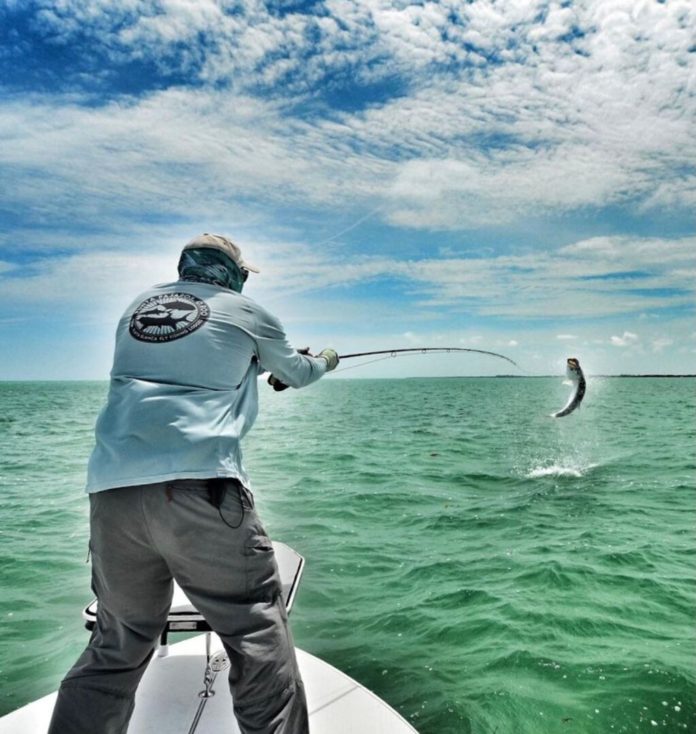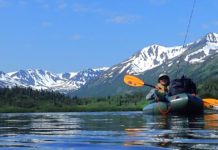With all of the visitors arriving to hit the slopes, the opposite tends to happen, too. Locals know this is the time to hop on a plane and take their fly-fishing pursuits to warmer, salty climes. Winter and spring are prime time on bonefish flats, low-country redfish marshes and backcountry mangroves for juvenile tarpon and snook.
Saltwater fly fishing tends to be the next step in an order of natural progressions for the trout angler. Once someone “masters” the art of the trout and fly, they tend to wonder what else they could pursue. Mountain anglers will need to throw out everything they know, because it’s a whole new game when you’re targeting a more powerful species in a totally different climate that are focused on vastly different foodstuffs. The casting, the hook set, the visuals, and how you work the fly are totally different than the trout games we play here.
It all starts with the rod and reel, so you can leave the 5 weight behind. Most saltwater species require an 8 weight at least, plus the reels are bigger and the fly lines are different right down to their core. Practicing before you go can save your trip, because that big rod will feel like a piece of lumber compared with your buggy whip trout rod. Being proficient in having the fly in your hand (the ready position) and then accurately placed 60 feet from the boat with two or three casts doesn’t come naturally to most. On a flat, you usually have a few seconds to react to a cruising permit, redfish or bonefish.
To make a saltwater trip worth your while, it pays to do your research on what species you may encounter, what they eat, where they like to hang out and why, plus who the most knowledgeable local guides are (if there are any). If you can find a guide, be on time, listen, be humble and follow their direction to a T. Being prepared is key; investing in the proper equipment, glasses, clothing, tools and flies can make or break your trip.
Most people behind the counters in our local fly shops tend to be part-time or aspiring saltwater fanatics. Ask questions, break out a map, save your money, and make a plan for the next progression in your passion for fly fishing. We all need something to look forward to in this life — anticipation is one of the purest forms of pleasure.
This report is provided every week by Taylor Creek Fly Shops in Aspen and Basalt. Taylor Creek can be reached at 970-927-4374 or TaylorCreek.com.
Credit: Source link































